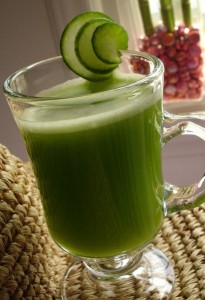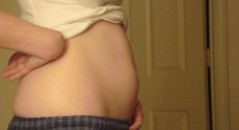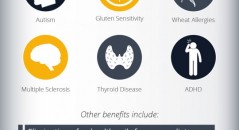 Juice cleanses have been made popular by claims that they can improve your health. Nutrition experts remain dubious about the efficacy and safety of the practice. If you are considering a juice cleanse, it is important that you educate yourself on the potential benefits and risks.
Juice cleanses have been made popular by claims that they can improve your health. Nutrition experts remain dubious about the efficacy and safety of the practice. If you are considering a juice cleanse, it is important that you educate yourself on the potential benefits and risks.
What juice cleanse advocates say…
The primary claim made by proponents of juice cleanses is that they detoxify the body. It is true that many modern, highly refined food products contain potentially harmful substances like trans fats, pesticide residues, and unnatural sugars. Juice cleanses prohibit you from consuming processed foods. Thus, during your cleanse, it is likely your exposure to these substances will be greatly reduced.
Juice cleanses are also said to be restorative for your digestive track. Consuming all of your calories in juice form will reduce the amount of effort your digestive track needs to exert in order to metabolize your food. The lack of complex food molecules like fiber and protein will allow the vitamins and nutrients in the juice to be delivered to your cells more quickly.
Juice cleanses might help you lose weight. The average juice cleanse adds up to about 1,000 calories of juice in a day. Most adults need 1,500 – 2,000 calories to maintain their weight. It stands to reason, that the 500 – 1,000 calorie daily deficit created by a juice based diet will cause you to lose weight.
Juice cleanses give your body high amounts of valuable nutrients. Some cleanse programs claim to deliver 12-15 pounds worth of veggies and fruits in just one days worth of juice. The average American consumes much less than this each day. Juice cleanse diets are a rich source of vitamins and minerals that most Americans deprive themselves of.
What medical experts say…
Our bodies naturally detoxify themselves. Joan Salge Blake, registered dietitian and professor at Boston University, explains “You do not need to do anything cleansing, per se, because you have a wonderful organ in your body called the liver. You don’t need to do any kind of food-based cleansing.” Blake goes on to say that the best way to keep your body free from toxins is to eat a diet of whole natural foods and avoid highly processed food products.
An all liquid diet could cause digestive distress. Highly regarded nutrition coach, Ryan Andrews of Precision Nutrition, points out that there is no scientific evidence to support the belief that our digestive track does better on a liquid diet. In fact, the lack of dietary fiber in an all juice diet is not a good thing. Fiber helps our bodies absorb nutrients and expel toxins.
Juice cleanses do not help you lose body fat the majority of the weight lost on a cleanse will be regained. According to Dr. Elizabeth Applegate, lecturer at the University of California–Davis, “On a cleanse diet, you shed water weight as your body breaks down its glycemic stores, but it comes back once you start eating adequately again.”
Most juice cleanses are deficient in protein. Protein is the primary building material of the body. Eventually a diet deficient in protein will become destructive. Protein deficiencies can inhibit the bodies ability to dispose of toxins thus having the opposite effect of a detox.
Stepping away from the typical American diet in favor of a diet rich in vegetables and fruits is an excellent idea. However a juice cleanse my not be the best way to do this. There are clear health benefits to a healthy whole foods diet but there is little evidence that juice cleanse can provide the same benefits.
Photo by Michelle Reaves Chellereaves






